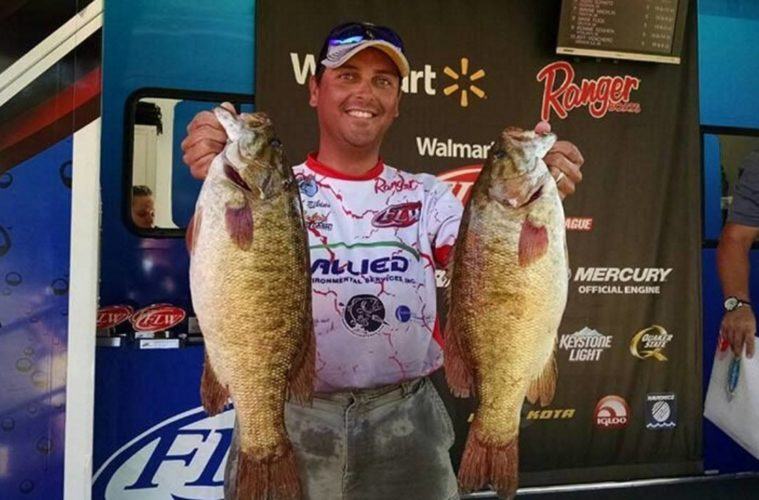 Editor’s Note: Forty-year-old Matt Elkins from Spencerville, Ohio, has been a tournament bass fisherman almost 20 years, and most of his competitors have no idea that he was born with spina bifida and another condition called bladder exstrophy.
Editor’s Note: Forty-year-old Matt Elkins from Spencerville, Ohio, has been a tournament bass fisherman almost 20 years, and most of his competitors have no idea that he was born with spina bifida and another condition called bladder exstrophy.
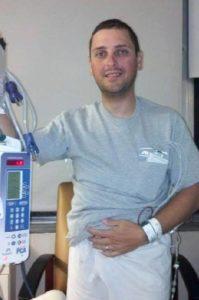 Elkins’ top tournament bass fishing accomplishments were winning two Bass Fishing League (BFL) tournaments back to back – a part of the Forrest L. Wood local bass fishing tournament circuit. Elkins won $5,437 in August, 2015, and $5,600 in August, 2016 at the Detroit River events.
Elkins’ top tournament bass fishing accomplishments were winning two Bass Fishing League (BFL) tournaments back to back – a part of the Forrest L. Wood local bass fishing tournament circuit. Elkins won $5,437 in August, 2015, and $5,600 in August, 2016 at the Detroit River events.
By winning these two tournaments, Elkins has proven the adage, “No matter how you start the race of life, what really matters is how you finish.”
Elkins has also proven that if you don’t give up on your dream, you can obtain it, if you just don’t quit. Elkins was born with spina bifida and another condition called bladder exstrophy with his bowel and his bladder outside of his body.
His conditions required more than 40 major operations between his birth until he graduated from high school.
“When I was in school, every Christmas and summer vacation had scheduled operations,” Elkins remembers.
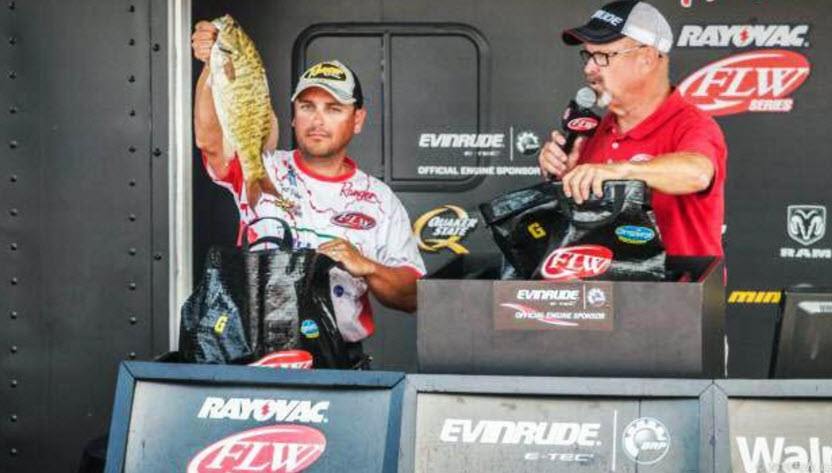
Matt Elkins Reminisces on the Big Fish That Didn’t Get Away
“My first big bass tournament win was in August, 2015 at a one-day tournament on the Detroit River with 85 to 90 boats fishing Lake Erie and Lake Superior. These two Great Lakes are dominated by smallmouth bass. To fish for summertime smallmouths there, I like to find and catch them offshore in 36 to 38 foot deep water.”
“In the western basin of Lake Erie, I use drop shot rigs or tube style jigs on rocky outcroppings, drop-offs and shipwrecks on the bottom. The bottoms of both lakes look like vast deserts. I use my Lowrance electronics (side scan, bottom scan and GPS depth finders) to find the bottom breaks and the smallmouths.”
See Matt Fishing on Lake Erie, Courtesy of Courage to Shine
Courage to Shine™ was founded to acknowledge, motivational and inspirational individuals and/or groups of patients whom have overcome congenital genitourinary birth defects and/or major urological surgeries in their childhood (but not limited to), and have the courage, strength and determination, to transform that adversity to triumph later in life.
“The first place I fished, I caught three smallmouths by 9:00 am, each weighing 4 – 4-1/2 pounds. We could weigh-in five bass at the end of the tournament. I also had marked another productive spot east of where I caught those fish and caught two smallmouths there that also weighed between 4 – 4-1/2 pounds. I assumed I had about 20-21 pounds of smallmouths to take to the scales.”
“From the research I’d done on tournaments held on Lakes Erie and Superior in the hot summer months, I knew that to finish in the top 10, a competitor generally had to weigh-in at least 20 pounds of live bass to win. So, I was fairly confident I should at least finish in the top 10.”
“As I drove my boat back to Trenton, Michigan, for the weigh-in, I decided to stop and fish the spot I had fished at first and then caught three smallmouths, including a 5 pounder. So, I thought I’d have a total of about 23 pounds. The unusual factor about catching that last smallmouth was that when I set the hook so hard, the reel on my rod broke out of its reel seat.”
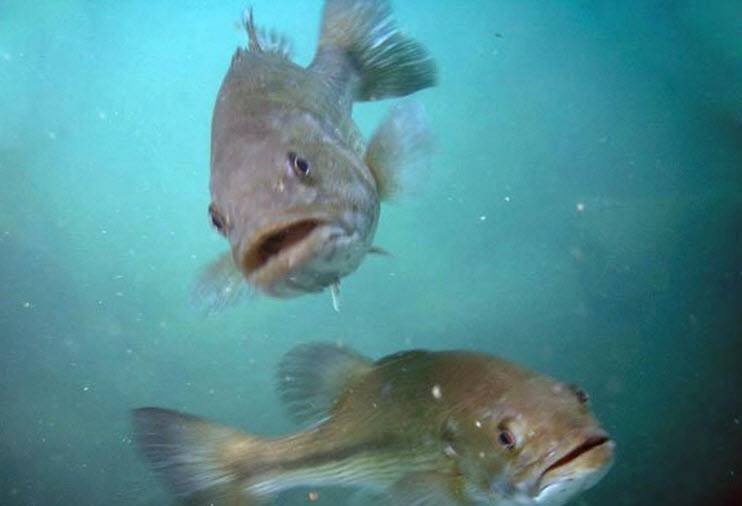
To land the fish, I had to pull it in hand-over-hand without the leverage that my rod or the reel’s drag system would provide.
“I took the smallest bass out of my livewell, released it and put the 5 pounder in my livewell to have a limit of five bass to weigh-in. I was concerned that one of my fish might die on the run back to the weigh-in site that I knew would take at least 2 hours. I gave myself an extra 20 minutes. Then, I could drive my boat slowly and not bounce the bass around in the livewell and I’d have enough time to stop and pump fresh water into my livewell to add more oxygen to the water to keep the smallmouths alive and lively.”
“I didn’t dare believe I’d win the tournament, and I was one of the last anglers to arrive. Scott McIntosh was in the lead with a weight of 21 pounds, 11 ounces. My weight was 22 pounds, 6 ounces. In both tournaments, I won the prize money plus another $2,000 at each tournament because I owned and fished out of a Ranger boat.”
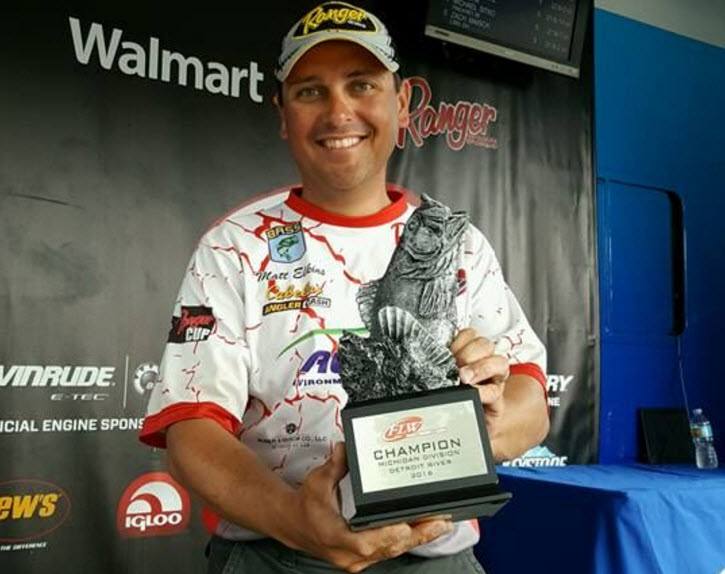
Matt’s Take On Tournament Bass Fishing and Accomplishing His Dream
My fishing career started as a child when every year, my parents took me fishing to Rice Lake in Ontario, Canada, located south of the city of Peterborough. I learned to fish with my dad out of a small johnboat, and I spent every free minute of summer vacation that I wasn’t in the hospital fishing close-by farm ponds to catch and release as many bass as possible.
Growing up with all my problems and surgeries, I never considered the fact that my life was any different from anyone else’s.
I didn’t treat myself or want anyone else to treat me as though I was different.
From the time I could remember, I wanted to be a tournament bass fisherman. I also realized that I would have to learn how to catch bass and how to compete and earn enough money to buy a bass boat and the equipment I needed, while still making a living.
By examining all the possibilities, I realized that getting a good education should provide me with an income to enable me to start competing as a tournament bass fisherman. I knew too that I wanted to become an environmental professional as my vocation.
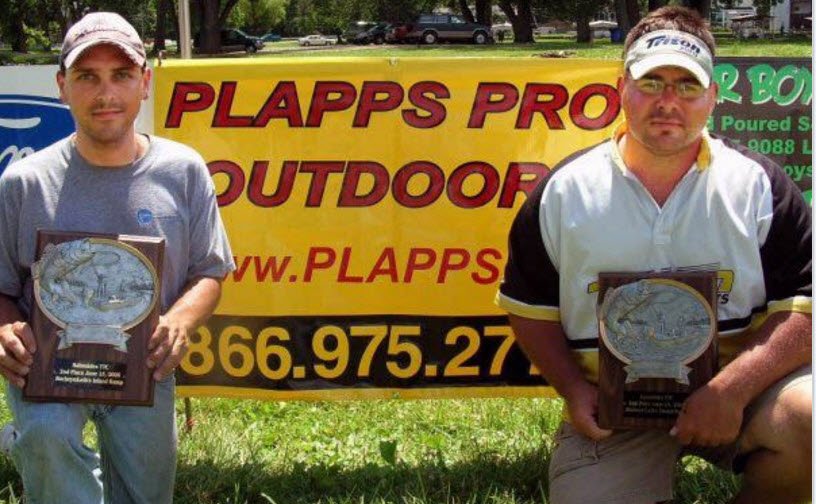
At Ohio State University, I got an undergraduate degree in environmental science and then a MBA from the University of Northwestern Ohio. After college, I worked for several consulting firms. In March of 2016, I took a job in a local refinery in Lima, Ohio, managing the hazardous waste at the facility and helping with all the environmental permitting.
When I graduated from college, I had several friends who belonged to a bass fishing club and fished in club tournaments. I asked them to sponsor me to join that bass fishing club. So, I’ve been tournament bass fishing since college.
I’m often asked, “When you fish bass tournaments, how have all the medical problems and operations you’ve had affect you?”
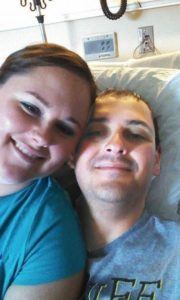
Hospital stays are just part of life for Matt Elkins and his loved ones.
How Matt Adjusts with His Disability to Be a Champion Fisherman
When I was born, besides having spina bifida and bladder exstrophy, I was also born with club feet. Today I don’t have much dexterity or function in my feet, especially my right foot.
When I’m fishing, standing on and using the foot pedal of a trolling motor for 8-10 hours per day is difficult. I have to operate the trolling motor on my boat almost exclusively with my left foot, which causes my back to hurt. I’m standing on my right foot all day, but enduring that pain enables me to compete as a tournament bass fisherman. I’ve tried using remote control trolling motors like the i-Pilot, but still have difficulty with them.
I’ve fished between 250 and 300 tournaments, since I’ve gotten into competitive bass fishing. Although I like to fish, I enjoy competing most. Once I determined I couldn’t be a pole vaulter, compete in the long jump or run a marathon, I started looking for a sport that I could enjoy, compete in and have a reasonable chance of winning. For me, bass fishing touched all those bases.
Bass fishing is a sport I can compete in on an equal level with anglers who haven’t had medical problems like me.
Bass fishing intrigues me, because I have to figure out where the bass live, how to find them and what’s the best technique to catch them. Once I’ve determined all those variables, then I like to test my angling skills against some of the best bass fishermen in my area.
Competitive bass fishing also represented the fulfillment of a dream that went all the way back to a time I was a little boy fishing in farm ponds and fishing with my dad in Canada. My parents weren’t surprised when I started competing in bass tournaments and have been extremely supportive. They helped me buy my first bass boat. Since then, they’ve encouraged me every step of the way in my bass fishing pursuits.

Matt spends a lot of time with the two loves of his life: his wife and his boat!
I bought my first tournament fishing boat in 2003. By having your own boat and competing as a boater, just about every decision during a day of tournament fishing is up to the boat owner. My boat gives me a tremendous amount of freedom and allows me to be in total control of my bass fishing destiny.
When I’m fishing in a BFL tournament, I’ll usually have a co-angler fishing with me, who doesn’t compete with me but is competing against the other co-anglers in the other boats. Now, I do fish other tournament circuits where I fish with a partner, and the total catch of the two of us determines the winner.
Most of my co-anglers never know and don’t ask about my condition.
I may have bathroom issues with my ostomy. If I can’t hide my ostomy, the co-anglers find out about my challenges. But no one I’ve ever bass fished with has said anything about my challenges nor has had problems fishing with me. As I’ve mentioned earlier, tournament bass fishing puts me on an even level with the other fishermen in that same tournament.
People who know me very well often ask me, “How do you handle getting beat up in your boat by the waves out on Lake Erie?” My answer is, “I drive carefully, and when the weather’s really rough, I go very slowly.”
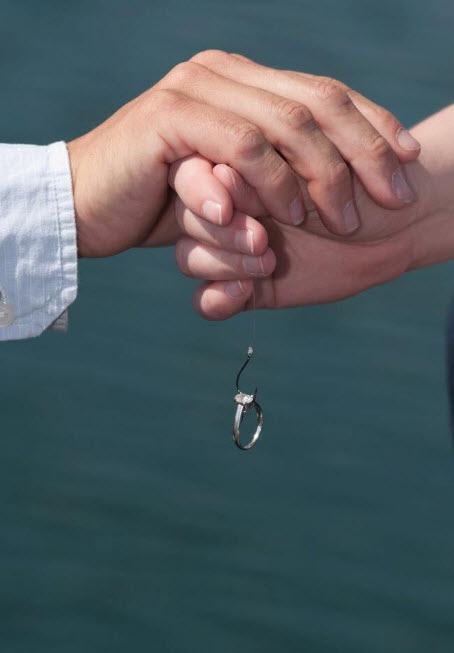
Matt Catches His Dream Lady, His Wife Lauren
Three years ago, I had another dream fulfilled when I married my wonderful wife Lauren. Lauren and I both were raised not far from Spencerville in an adjoining town called Wapakoneta and were both involved in our local 4H club. Lauren, a little younger than me, was home schooled.
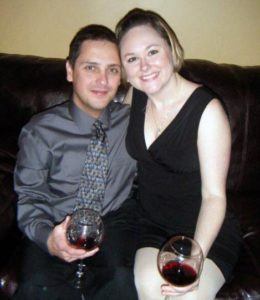
Matt and Lauren enjoyed their first date at a wine tasting event.
We didn’t know each other during grade school or high school. After we became adults, I moved to Spencerville, and Lauren moved to Maine. Then out of the blue, I received a friend request from her on Facebook. We spent a few months sending each other friendly emails.
When she came home for Christmas, I invited her to go to a wine tasting with me.
We started dating and corresponded for 2-1/2 years before we got married in 2013. Six months after we were married, I had a failure of a prosthetic device I’d been using for 30 years and had to have major surgery. Quite a bit of time was required to put together a surgical team to correct the problems that the prosthetic failure had created. Lauren and I spent our first year anniversary cuddled up together in my hospital bed.
 Matt Elkins Isn’t Scared of Spina Bifida or His Future
Matt Elkins Isn’t Scared of Spina Bifida or His Future
When I’m asked what’s in the future for me, I say I hope to continue fishing and competing in many more tournaments, especially on the Great Lakes. I’d like to move up the corporate ladder too at the company where I work.
I just want to keep on growing and being the best I can be in the different roles I’m here to play– in fishing, in work and in life.
My life’s motto is: “Don’t let anything hold you back.” If someone tells you you can’t do something, you shouldn’t attempt to do something, or, you should take it easy when you do try, don’t listen to that person. If there’s something in life you want to do, go for it!
Enjoy Our Free Resources & Articles
 CURE NATION is designed with you in mind, to offer assistance and education when you need it through a personal support program.
CURE NATION is designed with you in mind, to offer assistance and education when you need it through a personal support program.
All of the information you find below and on our related social media pages is meant to guide you to places, topics and, resources that enhance your life, while also connecting you with a growing group of friends.
- Sign up for our free, CURE NATION e-newsletter to have our latest stories delivered directly to you, once a month.
- Get our FREE LIFESTYLE + TRAVEL BOOKS here.
- Have an idea you’d like to share? Let us know.
- Be sure to take a minute to meet our Cure Advocates too.
You may also enjoy:
Arlene Long Shares Her Love of Community!
Motion Project: Together We Move
Why Troy Plunkett Created SCI Active Network and the Share-A-Chair Program
PUSHLiving Magazine Breaks Down Barriers for People Who Roll
Airline Tips from a Long-Time Wheelchair User + Accessible Travel Fan
Cure Founder Bob Yant: Fighting Paralysis with Persistence and Passion
Adaptive Outdoors Expert Ashlee Lundvall Says Be the Solution
Revealing Abilities That Make People Extraordinary

